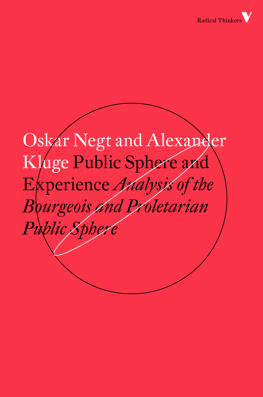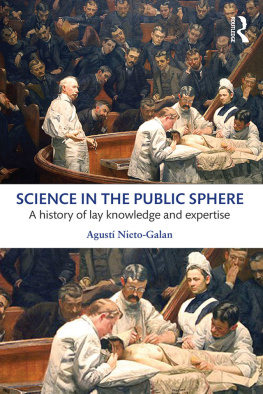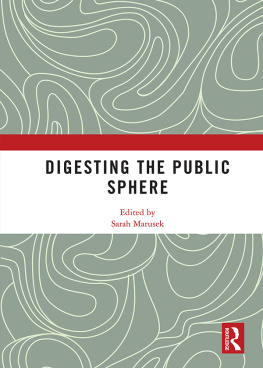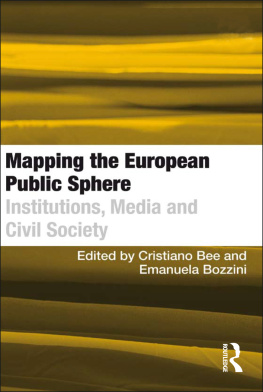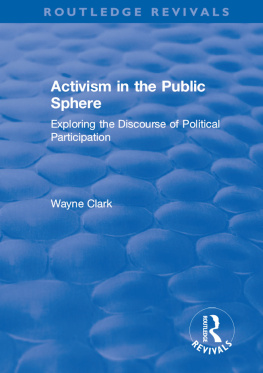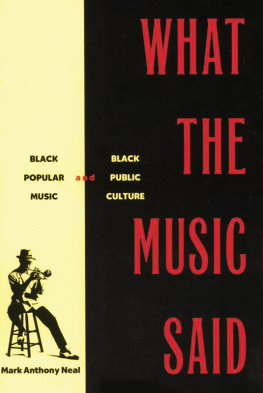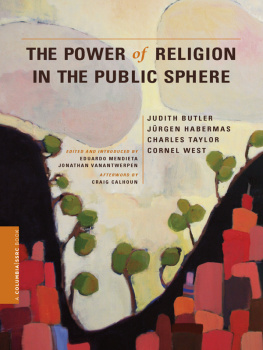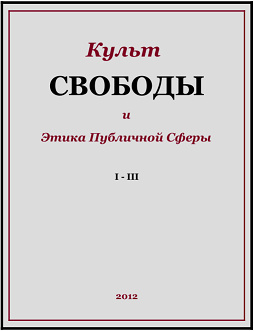Oskar Negt - Public Sphere and Experience: Toward an Analysis of the Bourgeois and Proletarian Public Sphere
Here you can read online Oskar Negt - Public Sphere and Experience: Toward an Analysis of the Bourgeois and Proletarian Public Sphere full text of the book (entire story) in english for free. Download pdf and epub, get meaning, cover and reviews about this ebook. year: 1993, publisher: University of Minnesota Press, genre: Politics. Description of the work, (preface) as well as reviews are available. Best literature library LitArk.com created for fans of good reading and offers a wide selection of genres:
Romance novel
Science fiction
Adventure
Detective
Science
History
Home and family
Prose
Art
Politics
Computer
Non-fiction
Religion
Business
Children
Humor
Choose a favorite category and find really read worthwhile books. Enjoy immersion in the world of imagination, feel the emotions of the characters or learn something new for yourself, make an fascinating discovery.
- Book:Public Sphere and Experience: Toward an Analysis of the Bourgeois and Proletarian Public Sphere
- Author:
- Publisher:University of Minnesota Press
- Genre:
- Year:1993
- Rating:3 / 5
- Favourites:Add to favourites
- Your mark:
- 60
- 1
- 2
- 3
- 4
- 5
Public Sphere and Experience: Toward an Analysis of the Bourgeois and Proletarian Public Sphere: summary, description and annotation
We offer to read an annotation, description, summary or preface (depends on what the author of the book "Public Sphere and Experience: Toward an Analysis of the Bourgeois and Proletarian Public Sphere" wrote himself). If you haven't found the necessary information about the book — write in the comments, we will try to find it.
Oskar Negt: author's other books
Who wrote Public Sphere and Experience: Toward an Analysis of the Bourgeois and Proletarian Public Sphere? Find out the surname, the name of the author of the book and a list of all author's works by series.
Public Sphere and Experience: Toward an Analysis of the Bourgeois and Proletarian Public Sphere — read online for free the complete book (whole text) full work
Below is the text of the book, divided by pages. System saving the place of the last page read, allows you to conveniently read the book "Public Sphere and Experience: Toward an Analysis of the Bourgeois and Proletarian Public Sphere" online for free, without having to search again every time where you left off. Put a bookmark, and you can go to the page where you finished reading at any time.
Font size:
Interval:
Bookmark:

Oskar Negt and Alexander Kluge
Foreword by Miriam Hansen
Translated by Peter Labanyi, Jamie Owen Daniel, and Assenka Oksiloff

This edition first published by Verso 2016
First published in English by the University of Minnesota Press 1993
First published as ffentlichkeit und Erfahrung: Zur Organisationsanalyse
von brgerlicher und prletarishcer ffentlichkeit
Suhrkamp Verlag, Frankfurt 1972
All rights reserved
The moral rights of the authors have been asserted
3 5 7 9 10 8 6 4 2
Verso
UK: 6 Meard Street, London W1F 0EG
US: 20 Jay Street, Suite 1010, Brooklyn, NY 11201
versobooks.com
Verso is the imprint of New Left Books
ISBN-13: 978-1-78478-241-2
eISBN-13: 978-1-78478-243-6 (US)
eISBN-13: 978-1-78478-242-9 (UK)
British Library Cataloguing in Publication Data
A catalogue record for this book is available from the British Library
The Hardcover Edition Has Been Catalogued by the Library of Congress As Follows:
Negt, Oskar.
[ffentlichkeit und Erfahrung. English]
Public sphere and experience : toward an analysis of the bourgeois and
proletarian publica phere / Oskar Negt and Alexander Kluge : foreword by Miriam
Hansen: ; translated by Peter Labanyi, Jamie Daniel, and Assenka Oksiloff.
p. cm. (Theory and history of literature ; v. 85)
Includes bibliographical references and index.
ISBN 0-8166-2031-8 (alk. paper)
1. Mass media Social aspects. 2. Public relations and politics. 3. Social
classes. I. Kluge, Alexander, 1932 . II. Title. III. Series.
HM258.N4313 1993
302.23 dc20
93-910
CIP
Printed in the US by Maple Press
The public sphere is the site where struggles are decided by other means than war.
Alexander Kluge
The belated English-language publication of German debates on the public sphere is itself an example of the vicissitudes of the public in a postmodern age. Now that Negt and Kluges study, Public Sphere and Experience, appears in translation twenty years after its initial publication in 1972, its temporal, political, and geocultural coordinates are just as much in question, if not more so.
How dated is it? How German is it? Instead of adjudicating upon the books relative anachronism or contemporaneity, I will try to encircle the question of its current relevance through the back door of its historicity, its pivotal relation to the German seventies. Undoubtedly, the particular imbrication of Public Sphere and Experience with the historical moment will transport the reader through a time warp, with the added twist of cross-cultural comparison. But the books historicity not only creates nostalgic or anachronistic effects (depending on where you were and how old you were at that time); it also suggests indirect routes of relevance to issues of the 1990s.
What may ensure the book more than a merely archeological interest is the unusual mixture of discourses, questions, and perspectives it mobilizes in pursuit of its subject. This is to some extent due to the different backgrounds of its authors, not only because they come from different academic disciplines and cultural professions but also because each individually had already strayed from the narrow paths of disciplinary and professional discourses. Oskar Negt, trained as a sociologist, had written an influential study on working-class culture, Social Phantasy and Exemplary Learning: On the Theory and Practice of Workers Education (1966). Alexander Kluge, known in this country primarily as a filmmaker and promoter of independent German cinema, got his doctoral degree in law, with a minor in religious music. By the time Public Sphere and Experience appeared, he had completed four feature films and several shorts, had published two volumes of stories, and was deeply involved in political battles over the Federal Film Subsidy Law. What brought them together was the context of the Frankfurt SchoolNegt was an assistant to Habermas, Kluge a friend and disciple of Adornoand debates in the wake of the student movement about the relation between Critical Theory and social practice. If Negts focus was on the problem of political organization and the role of culture and education in fostering working-class consciousness, Kluges work revolved around the problem of an alternative film and media culture and the political and economic conditions that made such a culture both necessary and possible. Their concerns overlapped in the question of how social experience is articulated and becomes relevantin other words, by which mechanisms and media, in whose interest, and to what effect a social horizon of experience is constituted. For Negt and Kluge, this question was at the core of, if not synonymous with, the problem of the public sphere. More precisely, it challenged the very possibility of defining the public (and attendant divisions of public and private) in any singular, foundational, and a historical manner.
In a number of ways, Negt and Kluges project has an affinity with recent debates in the United States. To be sure, nothing is new about the concept of the public sphere as such. There is a vast literature on the topic in American political and social thought, ranging from John Dewey, Walter Lippmann, C. Wright Mills, and Hannah Arendt through Jean Elshtain and Richard Sennett. Since the end of the 1980s, however, the term public has cropped up with a new urgency and concurrently in different disciplines and contextshistory, cinema and television studies, art criticism, feminist, gay and lesbian, postcolonial, and subaltern perspectives, to mention only a few. The term is now proliferating in titles of books, articles, and college courses. The Center for Transnational Cultural Studies (University of Pennsylvania) began in 1988 to publish its biannual bulletin under the title Public Culture. In 1990, the journal Social Text devoted a special issue (no. 25/26) to the Phantom Public Sphere, containing critiques of Habermas as well as sections from Negt and Kluges book. By alluding in their subtitle to Walter Lippmanns polemic of 1925, The Phantom Public, the editors signaled their attempt to bridge the American discourse on the public sphere with the German debate, whose reception had been limited by and large to more specialized journals like New German Critique.
What distinguishes this recent concern with the category of the public from traditional approaches is a greater degree of disciplinary promiscuity, prompted in turn by a more direct engagement with contemporary political issues and social developments. These seem to fall into, roughly, three overlapping areas of contestation: (1) gender and sexuality, specifically, struggles over reproduction, child-rearing, and the regulation of forms of sexual expression and intimacy; (2) race and ethnicity, specifically, the backlash against civil rights, the increase of ethnic-racial violence, separatism and nationalism, the question of identity politics; and (3) cutting across all these areas, the ineluctibly changed and changing relations of representation and reception, marked, on one level, by the accelerated globalization of the media of private and electronic consumption and, on another, by national controversies surrounding federal funding for the arts and the question of multiculturalism in the humanities.
Font size:
Interval:
Bookmark:
Similar books «Public Sphere and Experience: Toward an Analysis of the Bourgeois and Proletarian Public Sphere»
Look at similar books to Public Sphere and Experience: Toward an Analysis of the Bourgeois and Proletarian Public Sphere. We have selected literature similar in name and meaning in the hope of providing readers with more options to find new, interesting, not yet read works.
Discussion, reviews of the book Public Sphere and Experience: Toward an Analysis of the Bourgeois and Proletarian Public Sphere and just readers' own opinions. Leave your comments, write what you think about the work, its meaning or the main characters. Specify what exactly you liked and what you didn't like, and why you think so.

